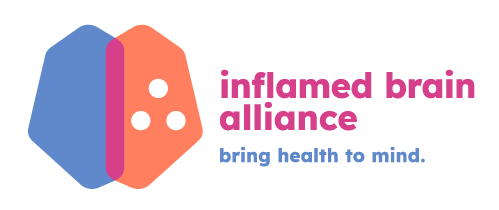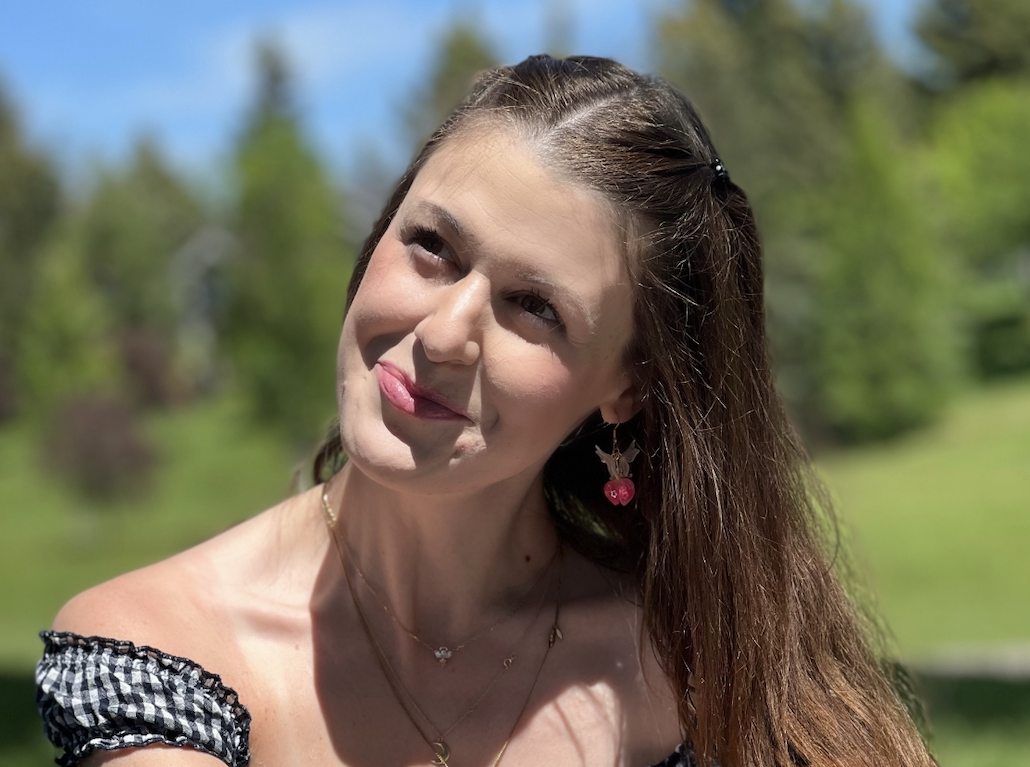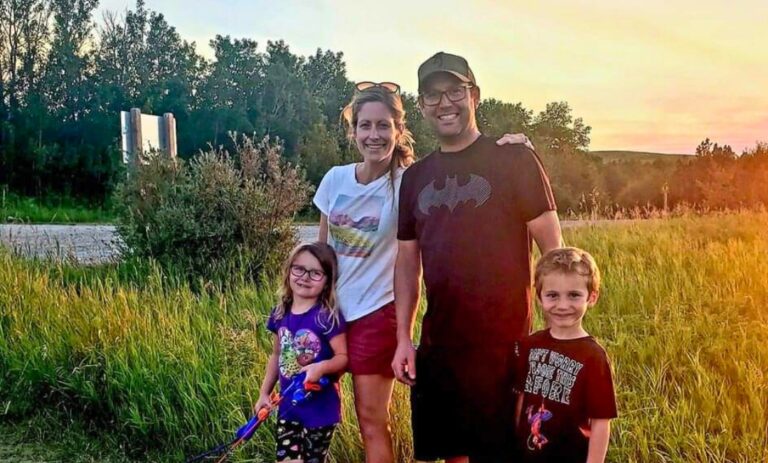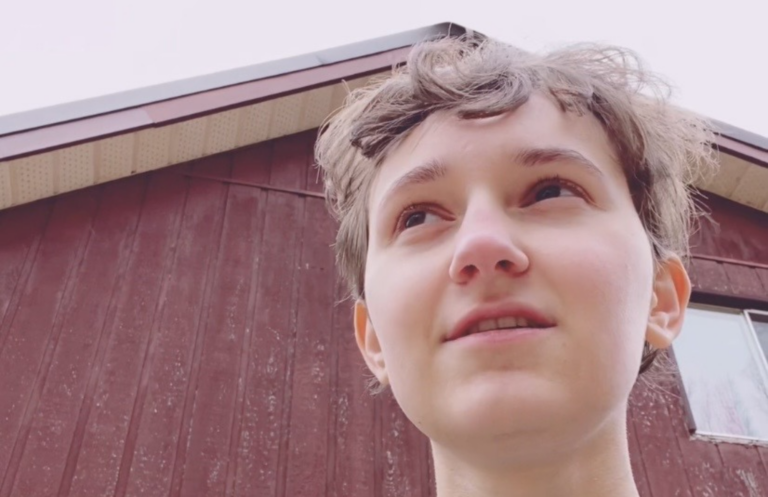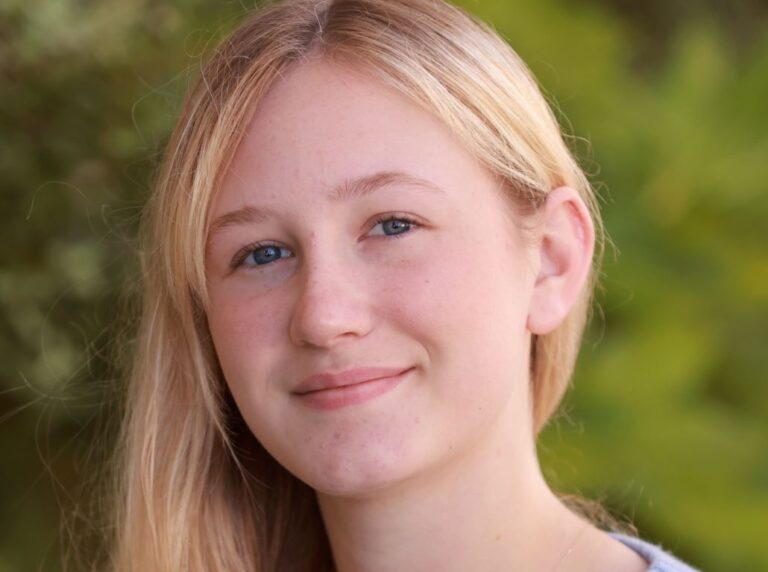Q&A with Kristen Campbell: A PANDAS/PANS Perspective through the Eyes of an Adult
Q: Tell us about your background and how you came to develop PANDAS/PANS?
A: I had a pretty classic suburban upbringing in Oakville, Ontario, Canada and I developed PANDAS at around 9 years old. My best friend’s younger sister had been off school with a bad case of strep and I was spending lots of time with them. My friend and I were looking forward to finishing the third grade. I remember an uneasy, queasy feeling leading up to the end of year celebration. Something didn’t feel right and one night I wet the bed, which had never happened to me before.
On the last day of school, I remember playing on the driveway with my dad: it was a perfect night, and I was squealing and laughing as he caught me with a water balloon. Then I looked at the sky and had a thought so clear it was like it came from somewhere else: you’re not going to be this happy again for a long time.
Later that night a weird jittery feeling came over my whole body. I was full of anxious energy that seemed to come out of nowhere. I made my dad open the window and hold me up to it so I could breathe, but it didn’t help. In the weeks to come, I would stop eating almost entirely, fueled by both a passionate fear of throwing up and an equally passionate fear of other people doing the same.
I refused to go to restaurants, movies, malls, or anywhere where there might be a crowd. I walked around on my tiptoes, worried constantly and cleared my throat. I had to tell my parents I loved them every five minutes (lest they get hit by a car while watching TV), and I couldn’t make any decisions. If I did, I’d change it a minute later, and if it was too late, I’d have a total meltdown.
Going back to school in the fall made things so much worse for me. My fear of throwing up meant I lasted about 5 minutes in the lunchroom (I had to go home for lunch and eat a rotation of ‘safe’ microwave dinners in front of the TV) and started extending to when a classmate coughed. I clung to my best friend for safety and couldn’t focus in class. Often, I ended up hiding out in the bathroom, where I did things like try to flush apples down the toilet and climb the empty stalls. When that failed, I caved and went to the principal’s office, where I said I wasn’t feeling well and asked to go home.
I had a battery of assessments and tests, which ended in me being diagnosed with generalized anxiety disorder and OCD. I got better over the next few years with time, CBT, and SSRIs. My mom also believes I was on antibiotics at least once for other illnesses. I was basically in remission from ages 13-27. Then, in February of 2018, my boyfriend tested positive for strep for the 3rd time in 6 months. 5 days later, overnight, was my second onset.
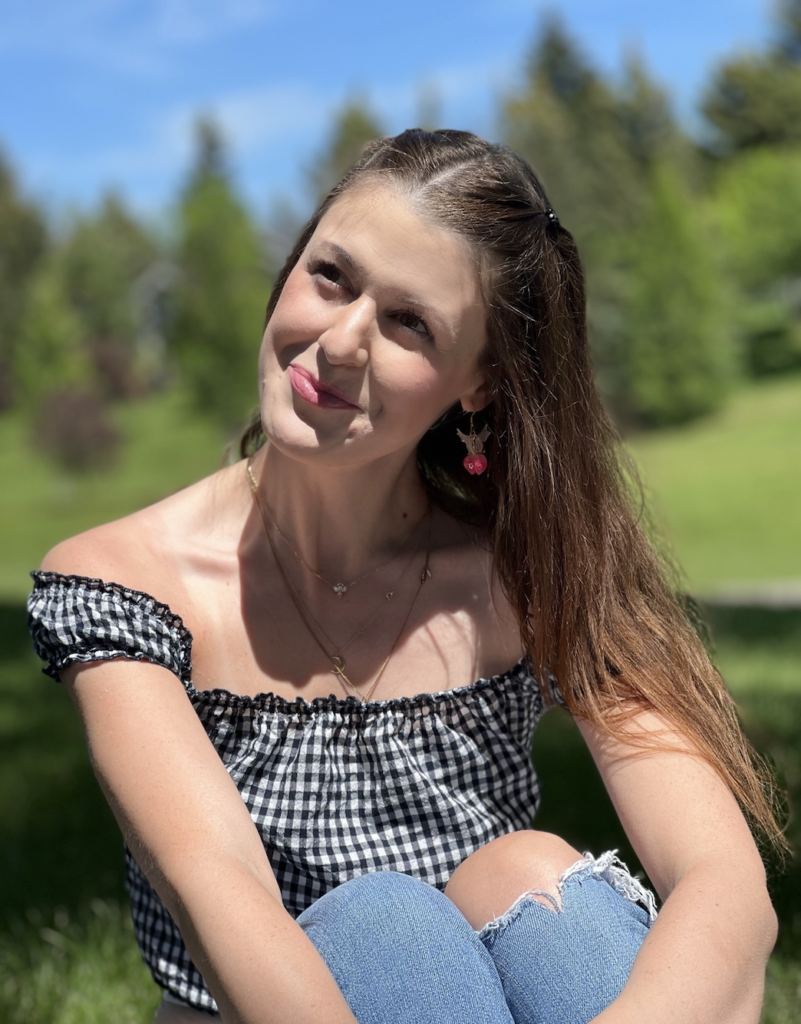
Q: What is the most frustrating part about dealing with PANDAS/PANS?
A: There’s no ‘happy ending’ to my childhood onset story — PANDAS was never brought up as an option. This was around 2000/2001, and the research was just coming out. I did CBT and lots of exposure therapy, where I learned to go to a restaurant and sit through a movie without running away. Somehow they even taught me how to stop clearing my throat, which is sort of impressive now that I think about it!
The CBT helped me to function in school. But I was awkward, clumsy, and forgetful. I was surrounded by teachers who were unsupportive, if not outright unkind. I learned to tell therapists what they wanted to hear, because what I was feeling didn’t seem to be the right answer. I learned to mask my symptoms and myself, closing myself off to everyone around me. Inside, I was frustrated and angry.
I’m not an expert, but I suspect the same thing happens to a lot of kids who deal with early trauma. You have to deal with something hard on your own, learn to conceal how you’re feeling about it, and keep showing up to school the way teachers or parents want you to. You’ve done things some adults can’t even do — and you’re only in middle school. You’ve had to do grown up things, only for everyone to talk down to you and make you follow their rules, and they scold you like a kid if you want to do things a different way. That’s frustrating.
Q: What challenges did you come across in finding treatment for the disorder?
A; I didn’t get a diagnosis as a child, but I had much more luck the second time around. The first therapist I had as an adult heard about my exposure to strep and immediately raised red flags. Almost every family doctor I saw believed my story, but none of them knew what to do. The doctors who did were pediatricians, and I was almost 30. They wouldn’t give me antibiotics without a positive strep test, and although I had a bright red peely rash, I didn’t think it was related so I didn’t say anything. I went without treatment until 2020, when I saw a new family doctor who agreed to a 2-week course of Amoxiclav. The change was night and day, but he wouldn’t continue to prescribe it when symptoms returned.
I ended up hearing about a psychiatrist here in Calgary who treated PANDAS/PANS and reached out on my own. She immediately understood what was going on, although I had to fight to get the locum doctor to refer me to her.
Last summer I swapped antibiotics and suddenly had these extreme neurological symptoms as well as the OCD again — blurry vision, jerky movements with my whole body, unable to squeeze the muscles in my bladder, seeing a painting on the wall move…without my psychiatrist, I think I would have ended up in the hospital.
She helped me find stronger antibiotics that worked and sent me to a neurologist, who agreed with PANS and recommended I go to a neuroimmunology clinic here in Calgary. Then the hospital triage for the neuroimmunology clinic kept redirecting me to movement disorders, where I think they’d be pretty confused to see me walk through their door! It really just sucked for a while, having all these amazing people on my side doing the best they could, but still being really sick.
Q: Where are you now in your PANDAS/PANS journey?
A: My second onset was a different beast. It was literally in the span of hours. I went to bed and woke up as a different person, full of anxious energy. I was terrified of health issues and barely ate. I kept a morning journal at the time and my handwriting was suddenly sliding off the page. I had other symptoms like phantom pedalling movements of my legs, as if I had an invisible second pair of legs and my heels were bashing into the floor, and I couldn’t hold a thought still. I couldn’t hold an image in my mind. It would move and jump around. I had intrusive thoughts about knives poking my temples all the time, or pins going into people’s eyes.
I’ve had pretty steady improvement since I got a real diagnosis. All the standard treatments — IVIG, antibiotics, anti-inflammatories — have worked wonders. I still have nights when my body jerks and pops like popcorn in my sleep if there’s something making me flare, but the improvements have been huge. No more phantom legs, no more knives, a dramatic improvement in OCD. It took me a while to recover from the flare last summer, but it’s gotten so much better. I feel almost like my old self.
Q: How has PANDAS/PANS impacted you and your family?
A: I think it was really hard on my parents for sure. Not just with my symptoms, but also how angry I was. I was mad about how the adults in my life treated me, I was mad that I had no emotional privacy. I didn’t have that intrinsic sense of self worth, and physically, my ability to feel things like compassion and empathy and joy was dimmed the same way my tastebuds were. As an adult, I felt those sensations pop back on 24 hours after the antibiotic, but as a kid I had no idea. I had walls up around myself ten miles high and wouldn’t even refer to my parents in therapy — it was ‘she’ and ‘her’ instead of ‘mom’. And of course, the therapist scolded me for that, I was dubbed a ‘mean and nasty kid’, but I was just so hurt. I didn’t feel seen.
Therapy as an adult has been really wonderful though. I love my parents so much and we have a great relationship now. I really respect them and their support over the years. They were just trying to do what the experts said back then, which was unfortunately, to tough it out. I also credit a lot of my improvement now to my boyfriend of seven years, who fussed over me like a mother hen the whole time I was sick. I really needed that kind of emotional nurturing.
Q: Are there any tips or advice that you’d like to provide to parents and/or youth with PANDAS/PANS based on your experience?
A: A kiddo with PANDAS/PANS has had to grow up fast — respect that maturity and treat them with the same respect you’d give your adult self, even if they’re melting down. No one is less than human.
Privacy is also really, really important. When you’re sick, you lose that privacy because people are always talking about you or monitoring you or giving out updates on your health, even to strangers. It’s still really hard for me not to snap up walls if someone even asks me how I’m feeling. I’m getting better at it, but I still have to fight the urge to just shut down.
The other thing my parents have said is that they wish they’d have home schooled me, and I agree. I liked school, but I didn’t really flourish until university when I had more autonomy. I don’t think I got anything out of the grade school experience besides therapy bills. When I graduated from 8th grade, my dad picked me up from the dance early and (very uncharacteristically) let me roll down the windows to flip the school off and holler every swear word I knew! That was probably when he thought about home schooling, but I appreciated it so much.
When I hear rumours about doctors insisting that it’s better for PANDAS/PANS kids to be in school and stick it out, I kinda want to blow bugs on them like John Coffey in The Green Mile, so they could feel how the illness feels. Like, “hey, if you were nine, and this was happening to you, would you still say ‘yep, that kid has got to be in school, it’s what’s best for them?’” I don’t think so, but it’s really hard to say that. Everyone’s economic circumstances are different — if you have to work, or you want to work, you should work. You’re important too, as a parent. Sometimes regular school has to happen for your sake, or maybe your child isn’t a good self-directed learner, or maybe they like seeing their friends. But I still want to John Coffey anyone that flat out insists on it.
Q: What have you learned from this journey?
A: Therapy is so good now, depending on who you see. I think ACT, EMDR, and working with trauma is just wonderful. It helped me much more than traditional CBT, which made me feel (especially as a kid) like it was “up to me” to do my homework, use the tools, and ‘fix’ myself. I’ve learned to respect my doctor’s decisions instead of trying to micromanage, although I still struggle sometimes. Surround yourself with doctors who you really trust, and then trust them. I think that’s your job as the patient: fight to get seen by the right people, be really aware of what you’re feeling in your body so you can describe it but trust your team. They’re the experts. Sometimes I think living with PANDAS/PANS is like when swimmers or runners practice with ankle weights, so it’s extra hard. Then when they take them off, they feel so light they just fly. And I don’t want to just walk, I want to fly. So, I just keep trying my best.
